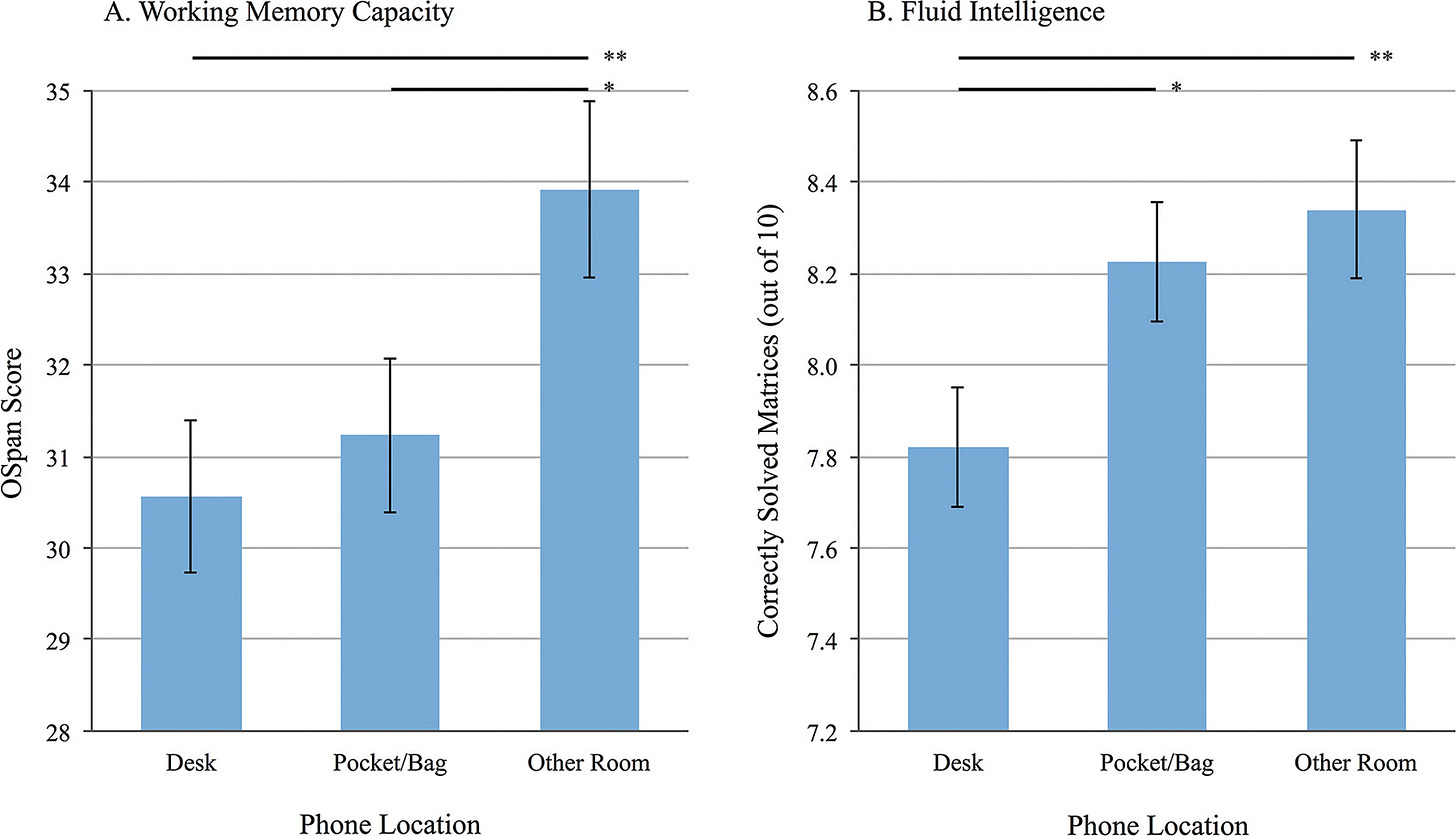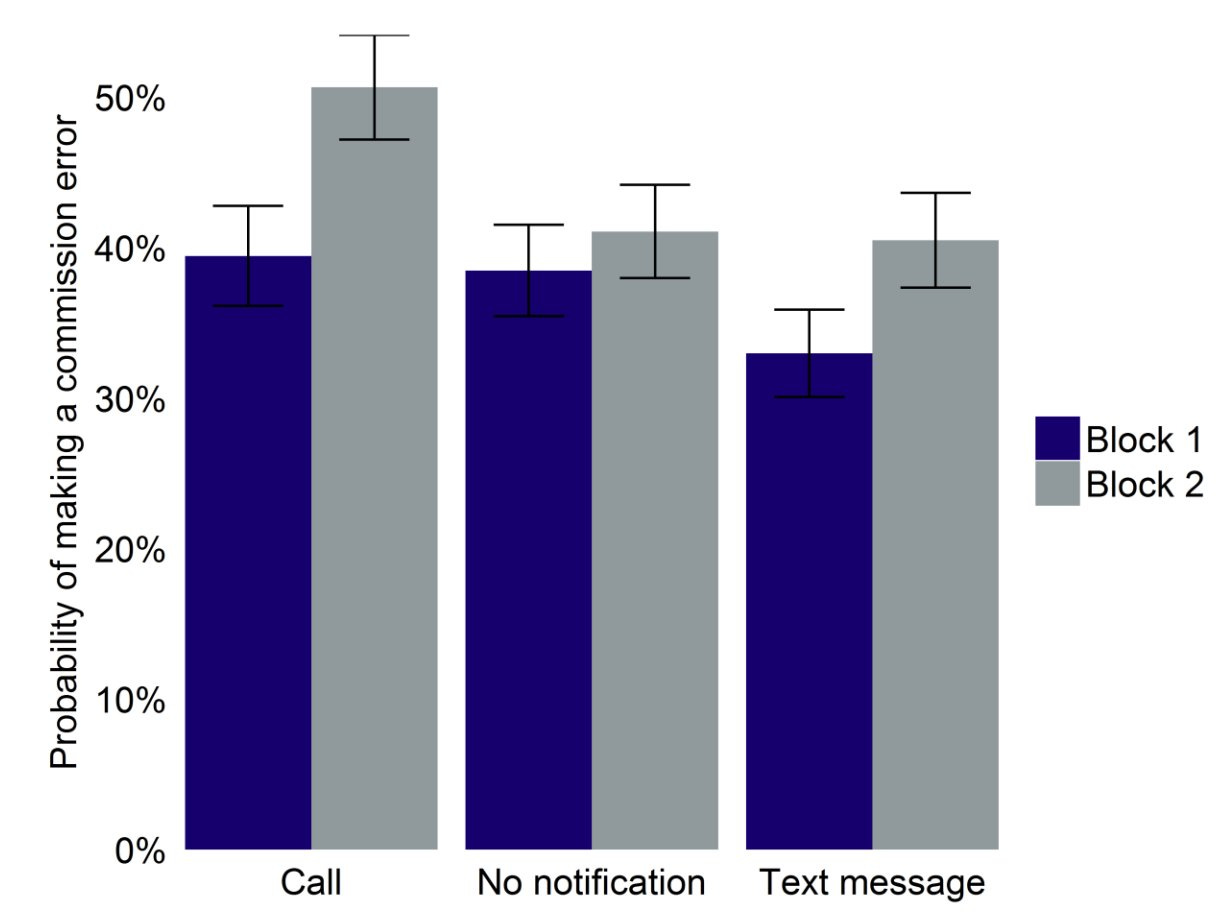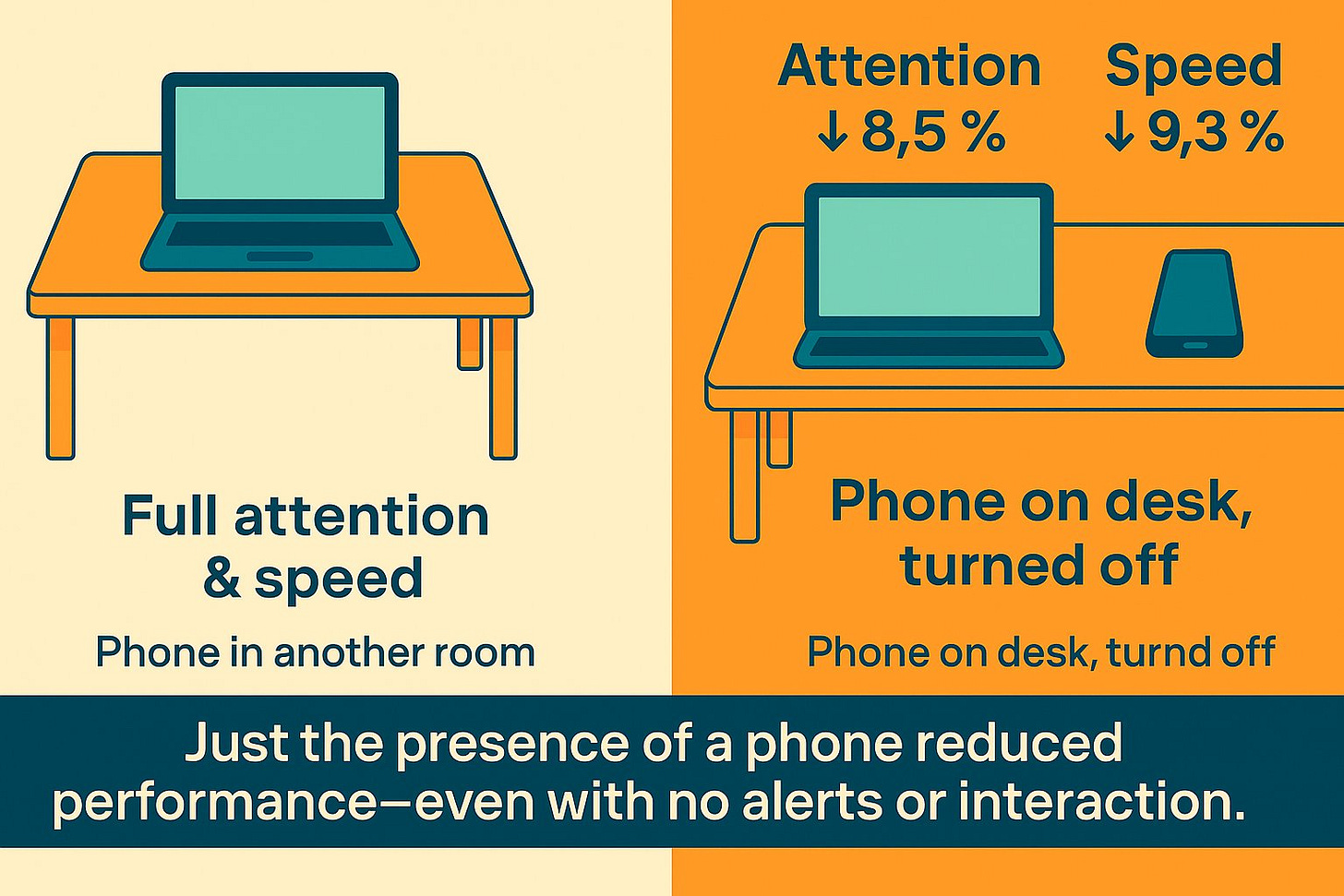Why I Work With My Phone in Another Room (And You Should Too)
How merely having your phone nearby silently drains your memory and attention.
It never crossed my mind that a silent, face-down phone on my desk could quietly sabotage my focus—until I saw the data. I wish I'd known sooner.
During medical training—packed with 26-hour call shifts, 100-hour workweeks, and study sessions squeezed between patient rounds—I became obsessed with studying smarter, not harder. Time was scarce, and I wanted to save space for life beyond medicine.
Like many people, I tried limiting distractions. I'd silence my phone, turn it face down, and tuck it into my pocket or leave it on the desk. Yet I still found myself reaching for it, often unconsciously.
This sparked my curiosity: Could simply having my phone nearby drain my mental energy?
When I dove into the research, the answer surprised me: Even a silent, switched-off smartphone can impair your cognitive resources—impacting memory, attention, and overall performance.
In this post, I'll explain how your phone quietly steals your brainpower, why it happens, and practical strategies to reclaim your mental focus.
Why a Silent Phone Isn't Harmless
Your working memory—the mental workspace for problem-solving, decision-making, and managing information—is limited. When irrelevant distractions quietly occupy this space, your cognitive performance suffers.
Recent studies have uncovered three key findings:
1. Just Having Your Phone Nearby Harms Working Memory and Intelligence
A fascinating study by Ward et al. in 2017 tested how the mere proximity of a smartphone impacts cognitive function. Over 500 participants took tests of working memory (how much information they could hold and manipulate) and fluid intelligence (problem-solving and reasoning).
Those with their phones on their desks performed significantly worse than those who placed them in a bag or another room. Surprisingly, this effect held even if the phone was completely off—the mere closeness drained cognitive resources, likely due to subconscious efforts to ignore it.
2. Just hearing a phone notification—without even checking it—disrupts focus comparable to the cognitive impact of distracted driving.
A 2015 study by Stothart and colleagues had participants complete attention-demanding tasks. Midway through, some received silent calls or texts. Even though they never interacted with their phones, these participants made significantly more errors.
Just receiving a notification—without checking—triggers internal distractions and mind-wandering, undermining performance.
3. Even a Powered-Off Phone Slows Your Attention
A 2023 study by Skowronek and colleagues assigned college students a simple letter-identification task, randomly placing their turned-off phone either on their desks or in another room.
The students with phones nearby (but turned off) showed roughly an 8.5% decrease in attention and a 9.3% slower processing speed.
The researchers found this occurred regardless of whether participants considered themselves "phone dependent," suggesting it's a universal phenomenon.
Why Does This Happen?
This phenomenon ties directly into Cognitive Load Theory:
Intrinsic load: How challenging the task itself is.
Extraneous load: Irrelevant distractions using cognitive resources.
Your smartphone creates extraneous cognitive load simply by being in your vicinity, because your brain perceives it as personally relevant. Your mind quietly works to ignore this distraction, using resources that would otherwise help you stay focused and productive.
How to Reclaim Your Cognitive Resources
Here’s an effective protocol I developed to reduce your phone’s cognitive drain:
1. Establish a Phone-Free Zone for Deep Work
Keep your phone entirely out of your workspace—ideally in another room. I remove my smartwatch too.
2. Hide Your Phone If You Can't Remove It
If another room isn't feasible, place your phone out of sight in a closed bag or drawer. Simply flipping it over or silencing it isn't enough. It needs to be out of sight and out of reach.
3. Schedule Regular Phone Check-Ins
Plan specific breaks to check your phone, eliminating the subconscious pull to constantly resist checking notifications.
4. Use a Pre-Work Checklist
Before deep work, I run through a quick checklist to clear potential distractions—sending necessary messages, logging important tasks, and updating colleagues or family. This prevents mind-wandering caused by unresolved tasks or messages.
Since adopting these strategies, my deep work sessions have become noticeably more focused and productive—I complete tasks faster and my mind wanders less.
Key Takeaways
Proximity matters: Even a silent, off phone impairs focus.
Notifications distract: Unchecked notifications harm attention.
Resisting your phone drains energy: Your brain uses cognitive resources to ignore your phone.
Best solution: Keep your phone completely out of sight with notifications off, ideally in another room.
Your phone might be quietly sabotaging your productivity. Keeping it out of sight and out of reach can significantly boost your focus, mental clarity, and overall performance.
If you found this useful, please consider subscribing—I’ll continue sharing free weekly, practical, science-backed tips to optimize your health, productivity, and mental performance.








I agree. Our phones are often in the other room. I never feel obligated to answer texts or phone calls unless I'm expecting something important. Focus, focus, focus!
Ohh this reminds me a piece I wrote a few weeks ago! love the way you presented these findings 😄subscribed!